|
Genres, Themes, Actors, and Directors:
- Alcoholism and Drug Addiction
- Cross-Class Romance
- Dorothy Arzner Films
- Fredric March Films
- Heiresses
- Marital Problems
- Sylvia Sidney Films
Review:
Possessing one of the best titles in early Hollywood history, Merrily We Go to Hell is — perhaps almost inevitably — a bit of a disappointment. Helmed by famed female director Dorothy Arzner, it tells the rather predictable tale of cross-class lovers marrying on a whim and discovering that life isn’t nearly as easy or idyllic as they might have hoped. Sidney is typecast as a sweet yet determined heiress who refuses to let either March’s lack of income or his glaringly obvious drinking problem get in the way of her love for him; March is an unwitting heel but as handsome and dapper as his role requires.
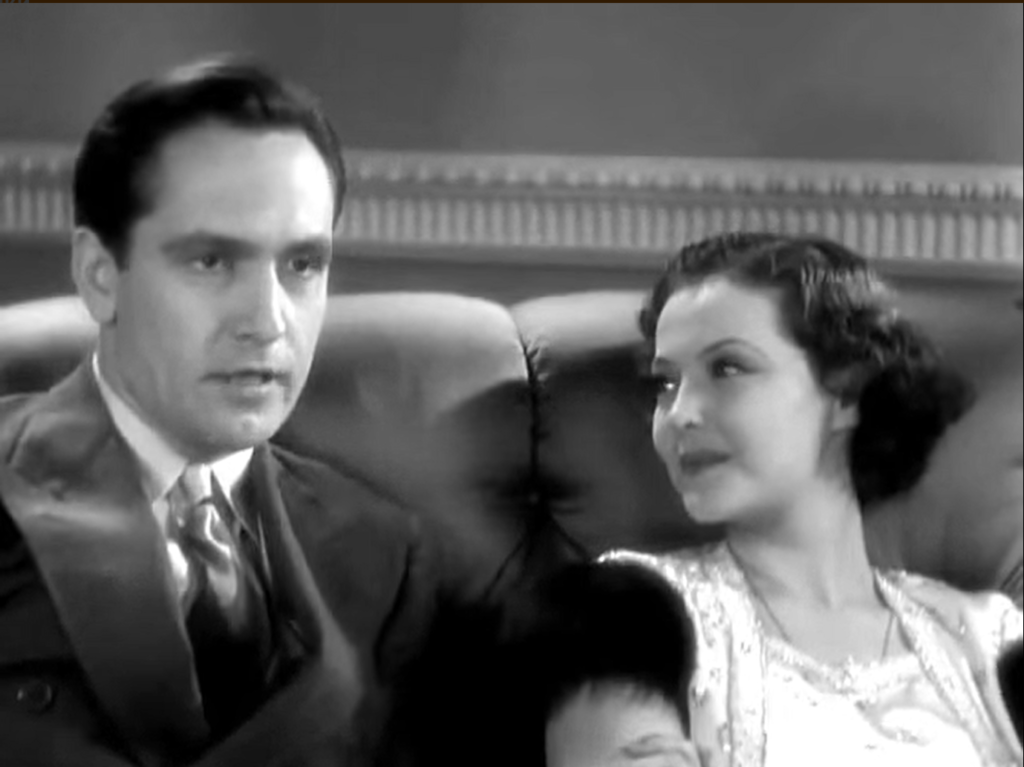
The title itself is based on a refrain March throws out several times before taking a drink, one which Sidney herself eventually adopts out of desperation — indeed, Sidney’s decision to try to meet March halfway in his cavalier attitude towards life and marriage constitutes the most interesting aspect of the story, as we see one of the earliest examples of a “swinging couple” on-screen (with Cary Grant showing up for a bit role as Sidney’s new lover). Unfortunately, the storyline eventually devolves into predictable melodrama, with traditional morality reasonably — albeit unrealistically — restored.
Note: The best line in the film is probably made when March sheepishly admits to Sidney early on that he “prefers the company of men”; this comment is never explored in more detail, but knowing that Arzner was a lesbian gives one occasion to pause.
Redeeming Qualities and Moments:
- Sylvia Sidney as Joan
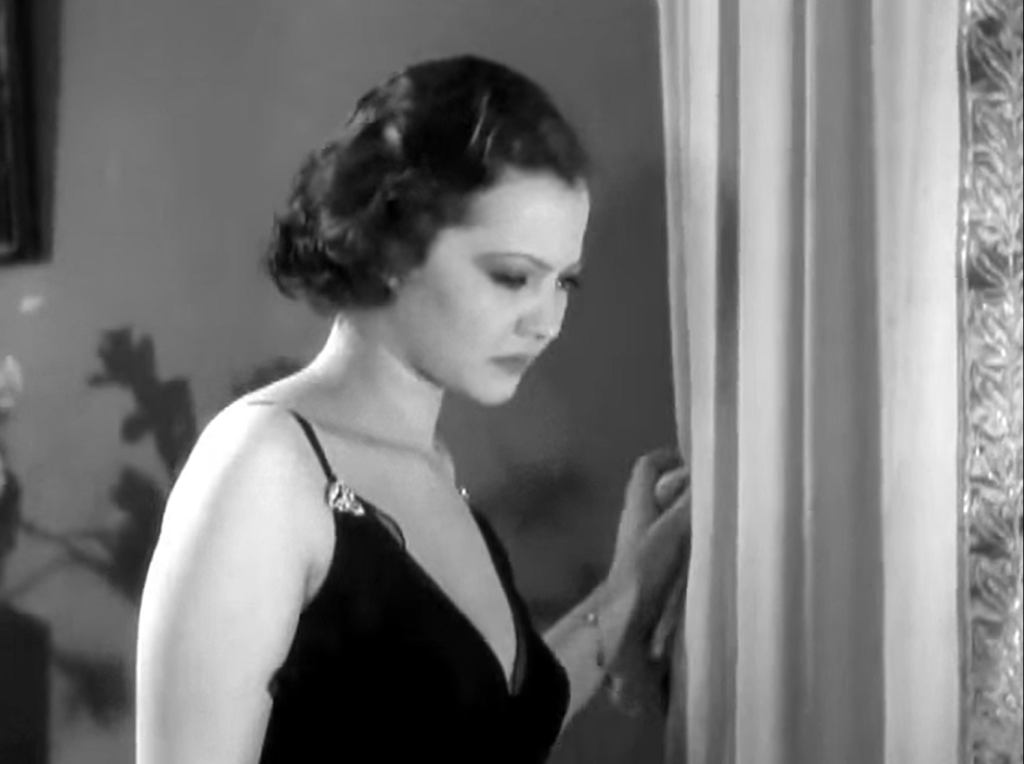
- Fredric March as Jerry
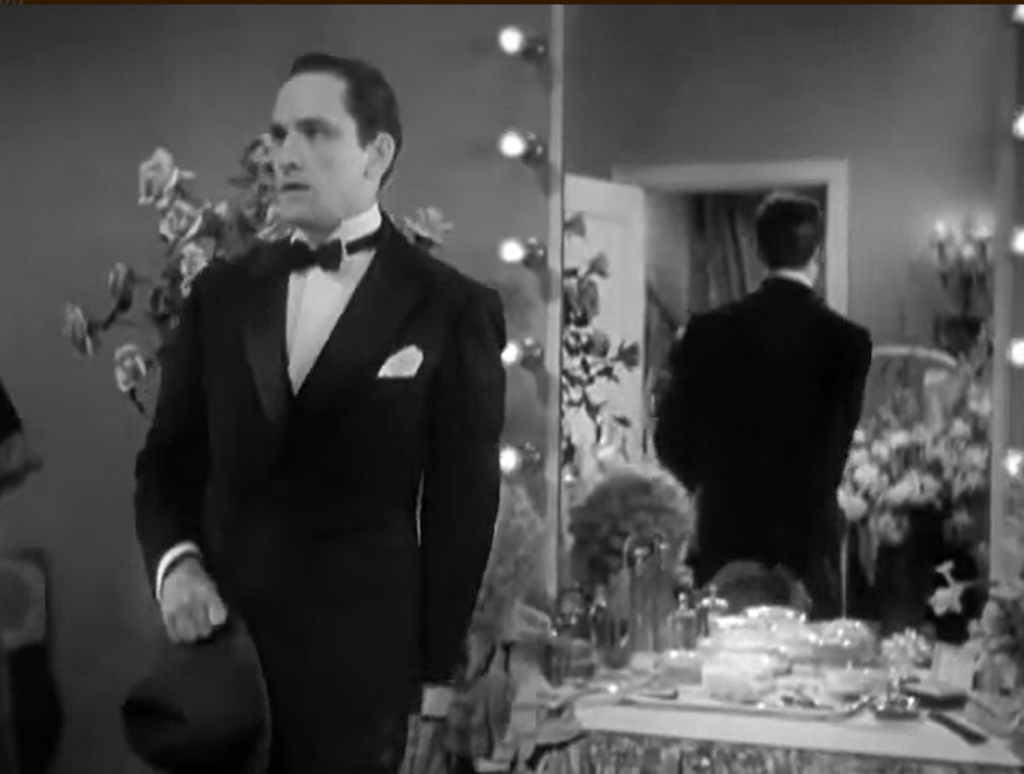
- A brave, early look at an “open relationship” as a response to marital infidelity
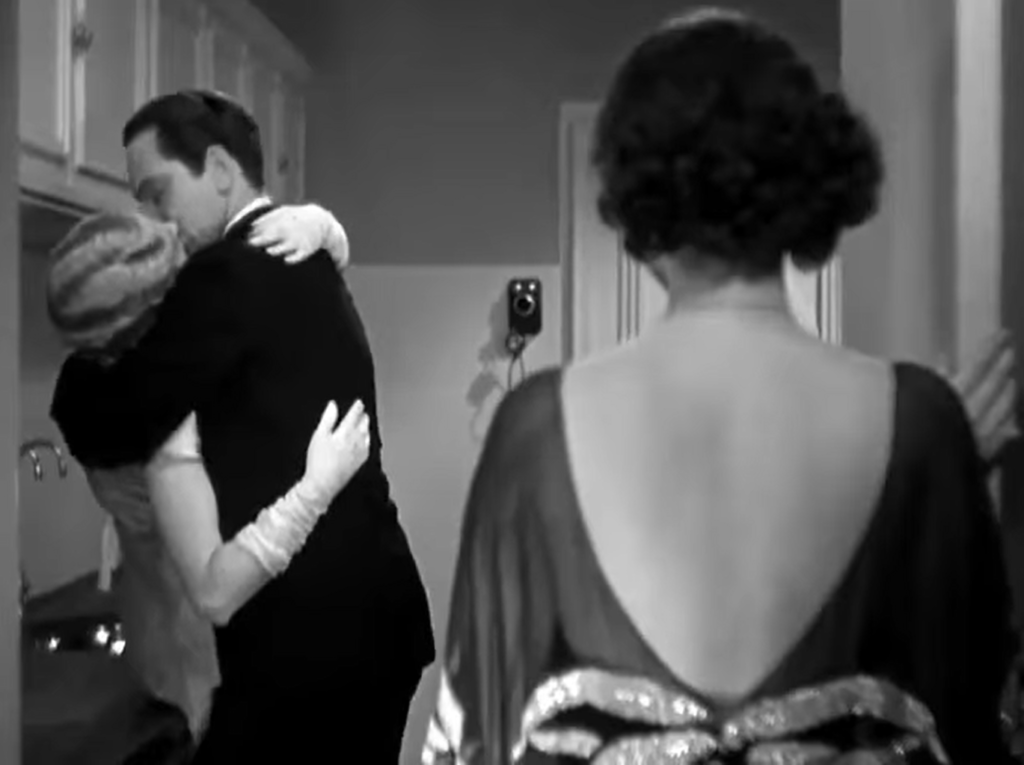
- Cary Grant in a very brief early appearance
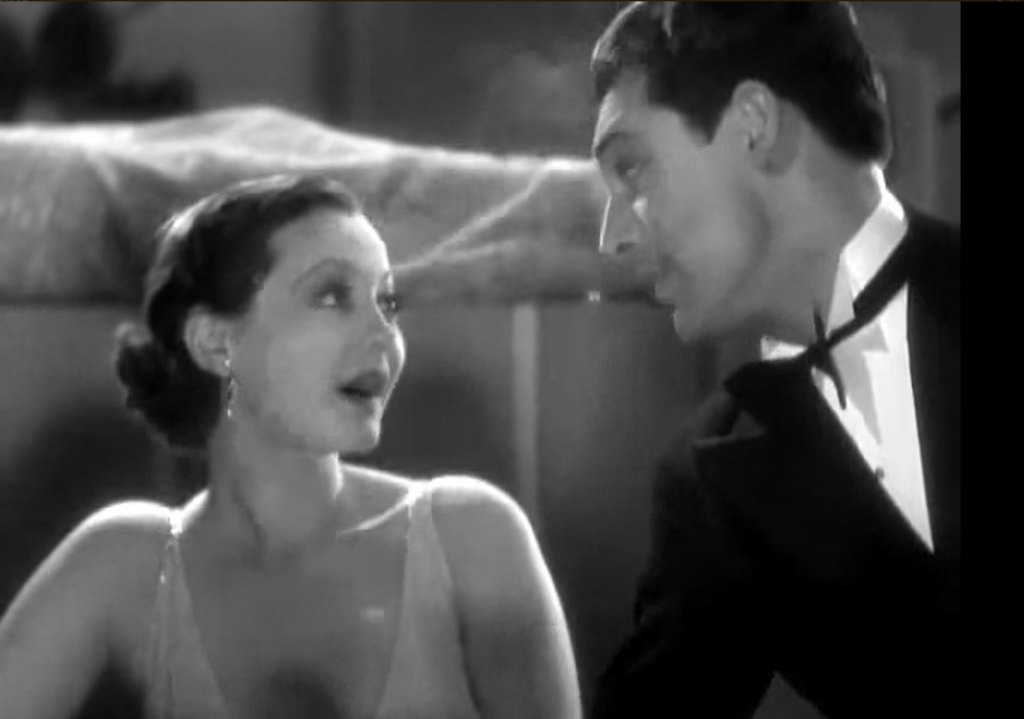
Must See?
No, but it’s worth a look.
Links:
|
One thought on “Merrily We Go to Hell (1932)”
First viewing. Oddly enough, a must; a unique film, with subtle direction by Arzner. If, on the surface, it doesn’t seem about much, perhaps that’s because it isn’t. But, here, what it is about – the attraction of opposites – remains compelling.
Certainly the first section is the most charming (I love the chemistry between Sidney and March here) – and it gives no indication of the odd turn the film will take. March is particularly endearing as he soon goes around telling people – all except his bride-to-be – that he’s going to be married. In retrospect, we will know the depth of his feeling. (Even though we all know – as is pointed out by Sidney’s father – that real love is accompanied by time and knowledge; something romantics pooh-pooh.)
As the film enters the second of three sections, a domino effect comes into view. What kind of compromise can possibly be drawn between two people so different yet so deliriously attracted to each other? One is reached, but that only complicates matters – up to the surprising and oddly moving conclusion.
Two sequences stand out:
In the first, March tries to get Sidney to keep him from going to another woman:
March: If you love me, you’ll lock that door so that I can’t get out.
Sidney: …I’m no jailer.
March: Shut the door, Joanie, or I will go.
Sidney: Get out!
It’s interesting to see a rare moment in which Sidney is appalled by March’s weakness of character.
In the second, more daring, party sequence, Sidney happens upon March about to make love to his old flame while a crowd, including a makeshift ‘director’, looks on:
‘Director’: Now, what I want from you ‘children’ is adult passion!
March: Ok, director!
March takes his mistress in his arms – a shot we see in 1/3 of the screen, with the other 2/3 taken up by a back view of Sidney, watching them. (See photo above.)
Two interesting ‘Arzner moments’:
When a male friend goes on about how “broken up” March is about not being able to get his play produced, a female friend responds: “Oh, of course, never give a woman credit for keeping up a man’s spirits.”
When that same female friend is speaking to Sidney in the kitchen about a failed marriage, the two women are seen in a very close, intimate embrace. March walks in on this and – refreshingly – makes nothing of it.
The film has a fascinating final scene.
BTW: For me, Sidney is something of an unheralded actress – and a personal favorite.